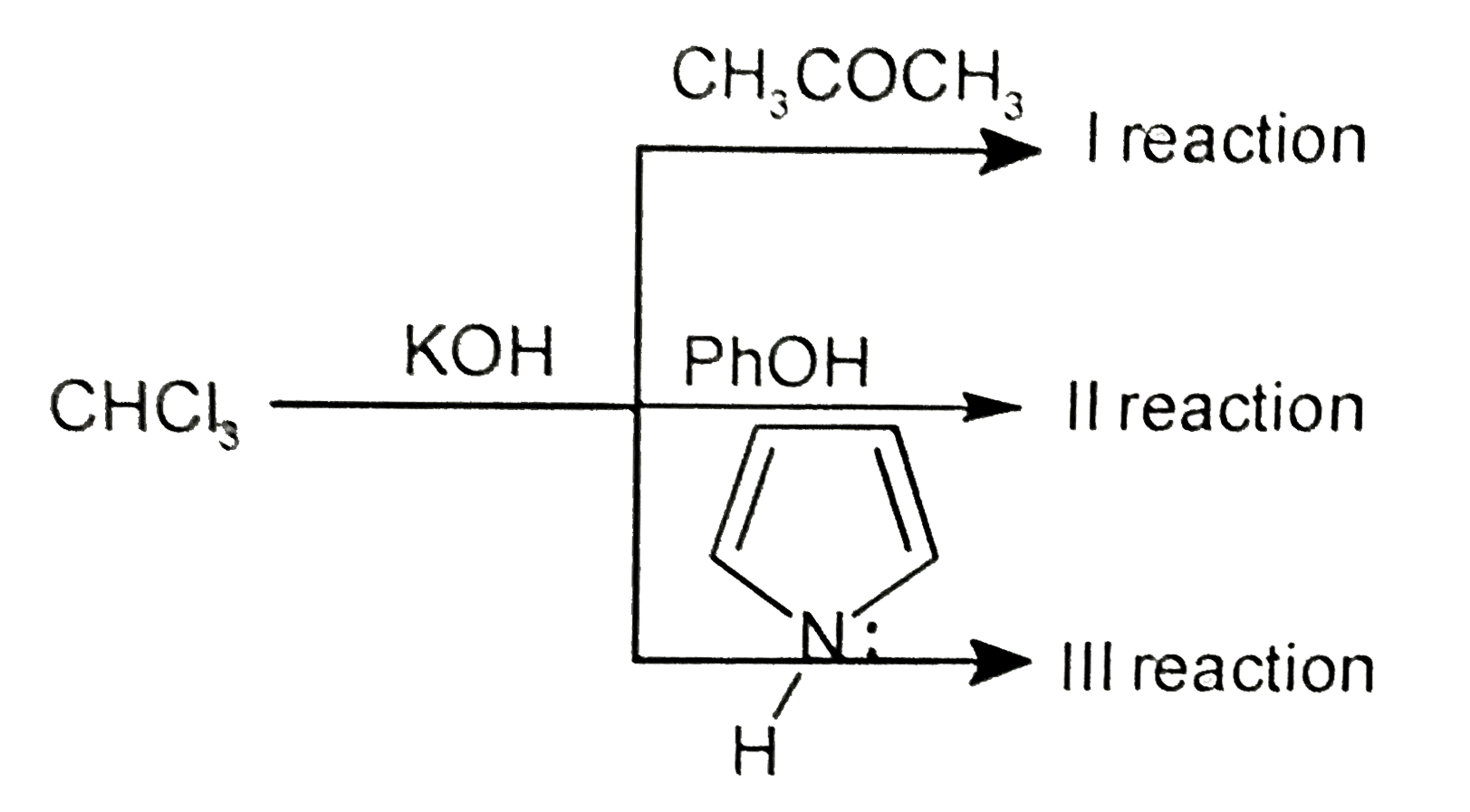What is the nature of its intermediate in this reaction ?A Carboniumion B Carbanion C Carbene D Freeradical
C Carbene.
Related Solutions
The reaction intermediates involved in the addition of HBr to propene in the presence of an organic peroxide are
(a) free radicals
(b)carbocations
(c)carbanions
(d)carbenesView SolutionThe reaction intermediate carbenes are produced from"
View Solution
in which of the following reaction carbene is intermediateView SolutionAn organic reaction occurs by using reagents called electrophiles and nucleophiles via the formation of some reactive intermediates called carbocations, carbanions, free radicals, carbenes, nitrenes, radical cations, and radical anions.
The most stable carbanion is :View SolutionAn organic reaction occurs by using reagents called electrophiles and nucleophiles via the formation of some reactive intermediates called carbocations, carbanions, free radicals, carbenes, nitrenes, radical cations, and radical anions. The most stable carbanion is :
View SolutionWhich of the following reaction will not proceed via carbanion intermediate ?
View SolutionWhich of the following reaction will not proceed via carbanion intermediate ?
View SolutionCorrect set of reaction which produce carbanion intermediate is/are
View SolutionCorrect set of reaction which produce carbanion intermediate is/are
View SolutionCarbenes are the reactive intermediates in:
View Solution1.correlation OF lone pairs and formal charges, 2.reaction intermediates a) carbocation, b)carbanion,c) free radicals
View SolutionWhich of the following reactions carbanion as the reaction intermediate?
View SolutionWhich of the following reactions involve carbanion enolalte as reactive intermediate?
View SolutionWhich of the following reactions involve carbanion enolalte as reactive intermediate?
View Solution- View Solution
An organic reaction occurs by using reagents called electrophiles and nucleophiles via the formation of some reactive intermediates called carbocations, carbanions, free radicals, carbenes, nitrenes, radical cations, and radical anions.
The most stable free radical is :View SolutionAn organic reaction occurs by using reagents called electrophiles and nucleophiles via the formation of some reactive intermediates called carbocations, carbanions, free radicals, carbenes, nitrenes, radical cations, and radical anions.
The least stable carbocation is :View SolutionHybridisation in Reaction Intermediate ( Carbocation, Carbanion, Carbene, Benzyne) || Allenes || Odd Electron Species || Dimerisation || Ion-Pair in Solid\ Liquid Phase || Calculation OF pπ-pπ and pπ -dπ Bond
View SolutionAn organic reaction occurs by using reagents called electrophiles and nucleophiles via the formation of some reactive intermediates called carbocations, carbanions, free radicals, carbenes, nitrenes, radical cations, and radical anions.
The most stable carbocation is :View SolutionAn organic reaction occurs by using reagents called electrophiles and nucleophiles via the formation of some reactive intermediates called carbocations, carbanions, free radicals, carbenes, nitrenes, radical cations, and radical anions. The most stable carbocation is :
View Solution
